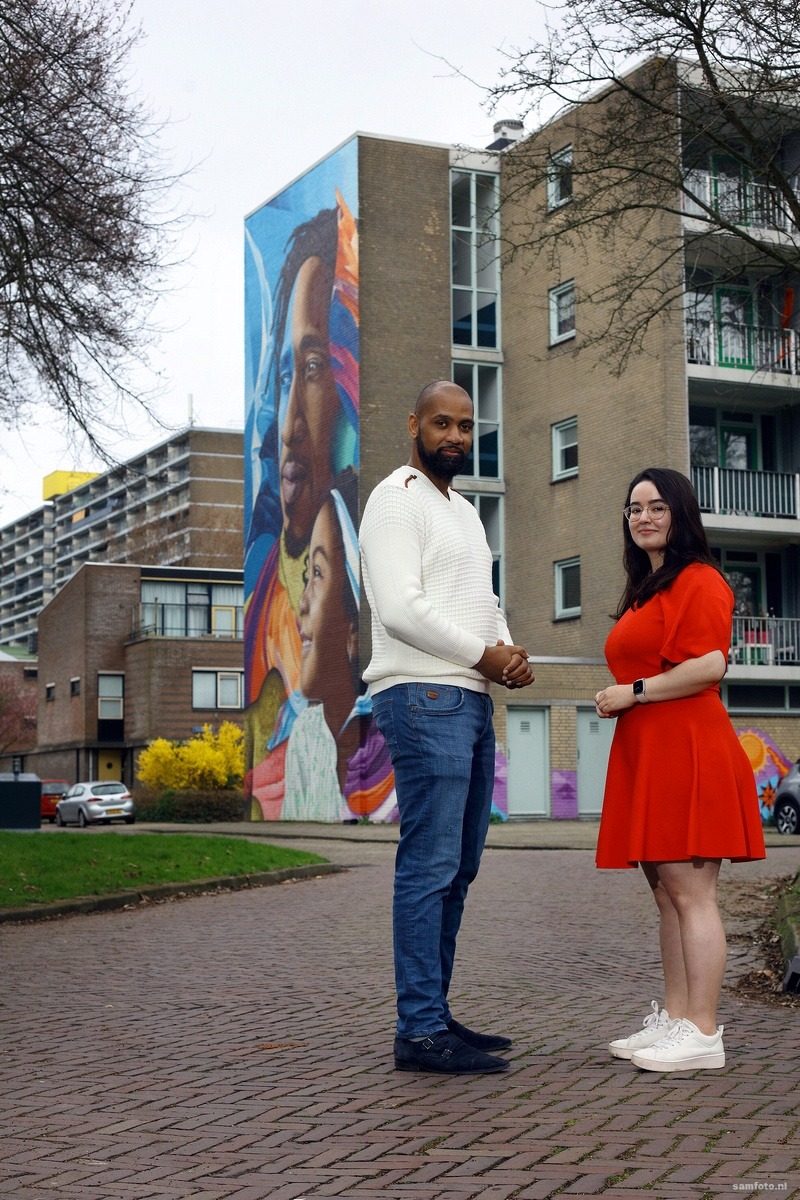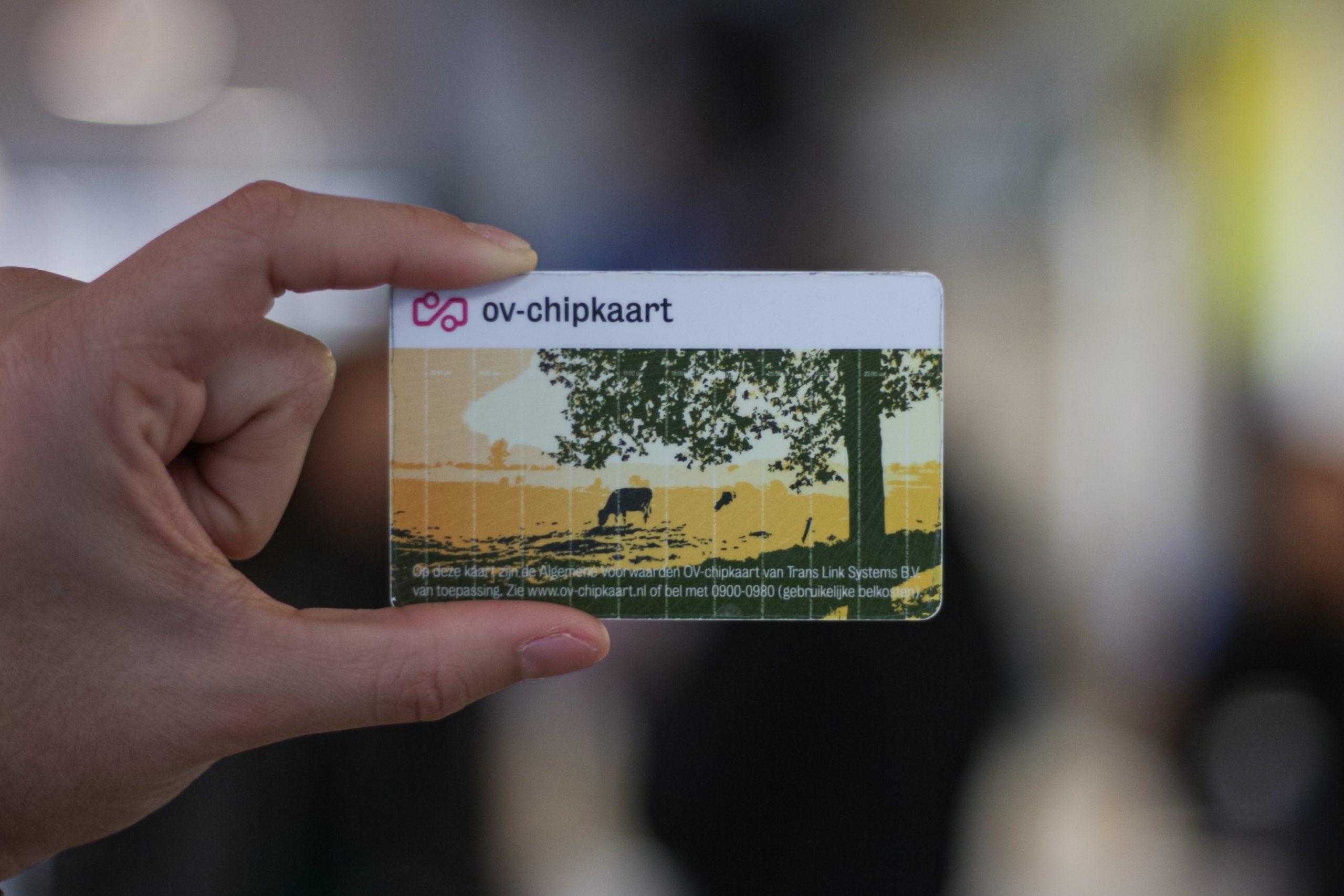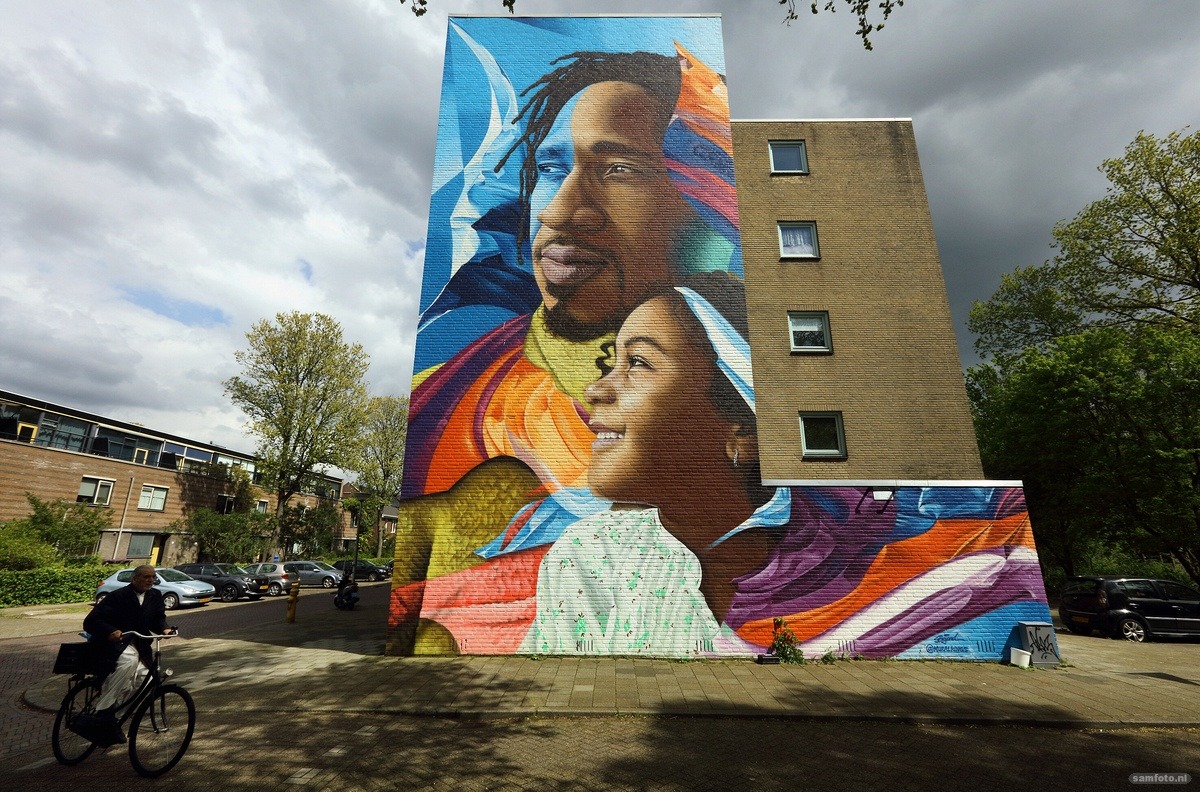Short news
Are you a student travelling by public transport on Wednesday or Thursday? Take note, because Thursday is Ascension Day. Students with a weekend pass (ov-kaart in Dutch, public transport card for students) can then travel for free, while students with a weekly pass only get a discount. The Wednesday before is also different (in Dutch).
Also good to know: with a weekend pass you can travel for free as early as 12 noon on Wednesday (and of course you can also travel all Wednesday with a week pass).
The Friday after Ascension Day is a normal Friday, even though many people take time off and it is also the May holiday. Students can travel that day as in normal weeks: free all day with a weekly pass and free from 12 noon onwards with a weekend pass.
Protect open and free science in Europe. That call is made by the national academies of science, including the Dutch KNAW, ahead of the European elections on Thursday 6 June.
For science, internationalisation is an important issue. After incidents with China and the war in Ukraine, some European member states distrust the international cooperation and exchange of researchers and students.
In the Netherlands, there are plans for stricter screening of foreign students and scientists. A big country like Germany is also working on restrictions. The door is not locked, but as the European Commission describes it: ‘cooperation with China is increasingly nuanced and transactional’. Other countries are also under a magnifying glass.
But international cooperation and exchange of knowledge, researchers and students are precisely a major asset of the European Union, the academies of science of 27 member states write in a joint statement. Scientists and students should be able to do their work “at all times under safe conditions”.
They further believe that countries should invest 3 per cent of their GDP in research and development. In her contribution to a press conference, KNAW president Marileen Dogterom underlined that the Netherlands does not yet reach that agreed 3 per cent.
‘Challenges’ like climate change, biodiversity loss, international migration, food security and the energy transition can only be tackled on a mutual trust-based dialogue between science, politics, civil society organisations and business, Dogterom underlined.
How can you do open and free science in a world with so many military and geopolitical threats? Scientists should not be naive, Dogterom replied, and look carefully at who they are working with. They should also assess whether their research could have a military application. Dogterom: “We have to find the balance, otherwise we are not doing ourselves any favours.”
HOP, Bas Belleman
SURF no longer tweets. The ICT cooperative for education is leaving X and opening its own server for education and research on Mastodon. There, users are less bothered by bots, trolls and spam.
Since Elon Musk took over Twitter and started calling it X, public ‘twexits’, as a farewell to Twitter is sometimes called, have been raining down. Musk would do too little against disinformation and incitement by trolls and fake accounts, his critics think.
SURF, too, has had enough. X no longer aligns with public values such as “humanity, autonomy and justice”, writes the ICT cooperative of Dutch educational institutions in a press release.
Many scientists have already left the platform or are using it less, SURF argues. A spokesperson refers to a recent study by Nature, in which more than half of the scientists surveyed said they tweet less or cancel their accounts.
SURF is switching to the much smaller Mastodon, which is open source and decentralised in nature. On the platform, local administrators themselves largely determine the rules and technology of their own communities.
HOP, Olmo Linthorst
After last year’s success, the second edition of the Liberation Festival will take place on the Doelenplein this year. On Liberation Day, which is 5 May, naturally. Organiser is Delft Vrij Foundation, in collaboration with six students.
Between 1 PM and midnight, all kinds of artists will perform on the square. ‘From big band to solo artist’, according to the organisation on Instagram. Filmhuis Lumen will be screening five films about freedom for the occasion. Closing the special programme is The Zone of Interest at 18:20, which was recently awarded several Oscars.
It is a festival for everyone, says student and organiser Fien de Mol van Otterloo. Besides music and films, there will also be activities for children.
Update 1 May 2024
The professor in question is Corinne Hofman, Dutch newspaper NRC reported (in Dutch) on Wednesday based on interviews with insiders. Sources within the university also confirmed to Leiden university magazine Mare (in Dutch) that Hofman is involved. She is a professor of archaeology and was dean of the archaeology faculty between 2013 and 2018. To NRC, she reports that she ‘unfortunately cannot make any statements about this case at this stage of the process’. The partner’s name is known to NRC, writes that newspaper, but is not mentioned.
Leiden University has suspended a full professor who, together with their partner, is said to be guilty of abuse of power, manipulation and violation of scientific integrity. The university announced this on Thursday. It is not known what the professor’s name is or which faculty they work at. However, university magazine Mare (in Dutch) reports that they have worked at the university for 33 years.
During all that time, there was allegedly a culture of fear among employees who depended on them, the university said. Among other things, the professor allegedly appropriated others’ research material and ‘monopolised’ certain data. Since autumn last year, a total of 19 reporters, including PhD students, postdocs and students, spoke to an investigation committee. In addition, administrators, peers and experts were heard.
Since the start of the investigation, the professor has been suspended. Furthermore, their partner is no longer welcome at the university. The Executive Board has requested the professor’s dismissal; if approved, the scientist will no longer be allowed to call themselves a professor.
Lessons
Next month, the Leiden Executive Board will disclose an (anonymised) investigation report on the issue. President of the Excutive Board Annetje Ottow wants to draw lessons from it, she writes in the statement. Problems with power, dependency and competitive spirit are ‘not just an issue in this faculty and at our institution’, she writes besides that.
Not only at TU Delft, but also at Leiden University, social unsafety is a topic that has long occupied minds. In 2023, for instance, Tim de Zeeuw was sacked, the professor of astronomy said to be guilty of multiple abuses of power and unwanted behaviour. Earlier, professors in pedagogical sciences were discredited (in Dutch) for the poor working climate of which they were identified as the cause after investigations.
HOP, Bas Belleman/Kim Bakker
Social safety at TU Delft
The Education Inspectorate report published in March showed that social safety at TU Delft is a big issue as well. Delta publishes extensively about this topic. Take a look at our dossier to see what we have written about it so far.
The colours jump off the wall at the end of a block of flats in the residential neighbourhood of Buitenhof in Delft. The image is of Remses Rafaela and his daughter from Rotterdam. Rafaela still sees her, but does not see his son Joah any more. “This painful situation is reflected in Remses’ eyes,” says Glenn Weisz, the Director of the Canidream Foundation and former TU Delft teacher. “One eye looks sad and the other one bursts with love.” Every year, 9,600 children no longer have contact with one or both parents as a result of an acrimonious separation. The Mira Mí mural puts this in the spotlight.
Mira Mí, which means ‘see me’ in Papiamento, is part of Canidream’s Nobis Community Art project. In the project, TU Delft students, artists and community builders work in areas around Buitenhof to ‘connect it and decorate it’. Alumnus Parya Lotfi was still studying at TU Delft in 2022 and took part as a student. She was in contact with neighbourhood residents and organised workshops for all sorts of groups in Buitenhof. “They included young people, senior citizens, primary school children and refugees. During the workshops, they told us who their heroes are.” Family members were named the most: fathers, mothers, brothers, sisters, aunts and uncles. As were buurtvaders (neighbourhood fathers). “Fathers are key in the contact between young people and various authorities in Buitenhof,” explains Weisz. He himself grew up in Buitenhof and recognises the key role that parents play in raising the children in the neighbourhood.

Pain
It was the artist called BEYOND, known as Roelof Schierbeek in everyday life, who translated the subjects emerging from the workshops to the mural. He chose the story of Rafaela and his children. “In doing so, he expresses the pain of the fathers who want to be there for their children, but who may not be. An acrimonious separation is one of the few areas where men are disadvantaged compared to women,” explains Weisz.
Weisz taught personal leadership at TU Delft for seven years. Lotfi was in his last class. The two met again in 2021 and Weisz asked her if she wanted to be part of one of his projects. This became Nobis 2. “She has really done exceptionally well,” says Weisz, “And that while she was already so busy as a research assistant and running her own company.” Lotfi is the co-founder and CEO of DuckDuckGoose, a company that specialises in technology that recognises deepfakes. Weisz continues. “We knew each other as student and teacher. The dynamics are completely different now – entrepreneur and entrepreneur. For example, on the way to this interview, we talked about organising certain processes in your company. It’s fabulous to see how she went from a student to a global entrepreneur.”
Art route
Apart from Mira Mí, Buitenhof has another mural called La Perla. Lotfi says that “It is about the hidden gems in the neighbourhood and was also conceived with the neighbourhood residents.” Weisz and Lotfi call this piece of art Nobis 1. In September of this year, a third mural will be painted in Buitenhof, the Nobis 3 project. The Prinsenhof Museum and the Mauritshuis Museum are involved. “During the workshops, neighbourhood residents will address the question of what we should cherish. What we should all look after. It could be anything: freedom, a green environment, travel, whatever.” The Prinsenhof Museum will then put together a tour for neighbourhood residents in line with their input. “That’s where the real magic happens,” says Weisz. “BEYOND, the artist, will also join the tours and will design Nobis 3 according to what he sees there and hears from neighbourhood residents.”
TU Delft students can also share their thoughts about this mural. Or to be more accurate, about the art route that will emerge. Delft is planning to add another 15 murals. To set a route along all the works of art, Weisz is planning to call on the help of TU Delft students. What that help will bring is still open. “One option is that it could be to look for the best places for the murals and how you then arrange the route. A second option is that I ask them to work on expanding the collaboration between the campus and the suburbs. A third is to integrate art and technology, one possibility being to include augmented reality in the art route.”
- The Le Comte award has a jury prize and a public prize. Vote for Mira Mí by emailing Delft op Zondag.
- Do you want to work on Nobis 3? If so, email Glenn Weisz at info@canidream.nl
In June, TU Delft student Abdelkader Karbache will become the new president of the National Students’ Union (LSVb). At the National Students’ Association (ISO), Mylou Miché will then take over.
Karbache (23) is pursuing two masters at TU Delft (Mechanical Engineering and Sustainable Energy Technology) and was already a board member of the Delft student union VSSD and a member of TU’s central student council.
In a press release, he says he is concerned about issues such as student housing, student debt and student funding. “Time and again, the current generation of students have been the ones to suffer. If it is up to us, students will no longer lose out. We will pull out all the stops to permanently improve the position of students.”
From June, the board of the LSVb will further consist of Ocke Siertsema (21, student of public administration and government management at the Haagse Hogeschool), Gijs Grimbergen (23, studied geography and planning at the University of Utrecht), Boutaina Chami (24, studied psychology at the University of Twente) and Yason Sinout (25, graduated in history and economics at the University of Utrecht).
ISO
At the ISO, Mylou Miché (25, International Development Studies student at Utrecht University) joins as chair. The board will further consist of Gwendolyn Hermans (24, psychology student at Radboud University in Nijmegen) on 22 June, Jorrit Berendsen (22, public administration and government management student at NHL Stenden Hogeschool), William Duke (25, American Studies student at Nijmegen) and Stijn van Hussen (24, International Relations student at the University of Groningen). (HOP, OL)
Delft student Max Pelsma (23) was honoured with the Erepenning voor Menslievend Hulpbetoon (English: medal for humanitarian assistance) at the town hall in Delft on Tuesday. He was presented with the medal by mayor Marja van Bijsterveldt for rescuing a woman from the water earlier this year.
On 18 January, the student saw a car land in the icy canal from his student room at the Kolk. Without hesitation, he sprinted outside, took off his jumper and dived into the canal. With a hammer provided by his housemates, he smashed the car window, after which he was able to pull the woman in it out of the vehicle.
In a voice recording that circulated on Whatsapp Pelsma recounted his heroic act. ‘It was like a movie […] I looked outside and across the canal I saw a car just tipping over […] I didn’t believe my eyes.’ A video shot by his housemates circulated on the same medium, showing the student jumping into the canal without hesitation. The woman in the car was unharmed.
Van Bijsterveldt is proud that the student is a resident of her city, according to the press release from the Municipality of Delft. ‘Max, what you did is quite extraordinary and brave’.
Submitted by Ruben Wiersma (PhD student at Electrical Engineering, Mathematics and Computer Science)
For a few years now, I have enjoyed listening to Esther Perel’s podcast ‘Where should we begin?’. In the podcast, she talks to couples who encounter problems in their relationships. It could be that one is fighting too much, their partner is too rational; one does not feel heard, their partner does not feel respected; and so on.
Perel, like no other, ensures that both parties in the relationship feel heard. Usually, the partners leave with a new perspective and regained courage to move forward with each other. It is wonderful to hear her working: she is sharp, straightforward and helps the partners understand each other.


Following developments around the Inspectorate report, I often think: if only we had someone like Esther Perel. Someone who intervenes when one of the partners shoots into action mode too quickly, instead of listening and acknowledging. Someone who helps partners find the words that make the other feel heard. Someone who explains to the partners that one person’s complaint is not an immediate condemnation of the other’s intentions.
Instead, the Executive Board gets advice from marketing agencies on reputation damage, we all hastily draw up an action plan, regular and transparent communication is shunned or rather rigorously opposed[, and] The Executive Board wants us to focus only on the future, without explanation or accountability for past missteps.
Perhaps it is an idea to invite Perel to a future consultation? Until then: you can listen to ‘Where should we begin’ for free on your favourite podcast platform. Or listen to ‘How’s work?’, a spin-off of the podcast for work situations.
Want to know more about the inspectorate report and everything related to it? Check out our file.
On Friday 19 April 19, Dutch Lower House member Luc Stultiens (GroenLinks-PvdA) asked parliamentary questions about the course of events surrounding an article that Delta took offline in protest. Among other things, Stultiens wants to know whether Outgoing Education Minister Robbert Dijkgraaf shares the view of the Nederlandse Vereniging van Journalisten (Dutch Association of Journalists, Eds.) that the independence of independent higher education media is under pressure.
The legal pressure exerted on Delta – for which the Executive Board has since apologized – is not the first incident that higher education media have had to deal with. For example, the editors of Cursor (TU Eindhoven), put their website on black last fall in protest against the dismissal of the editor-in-chief and the curtailment of their editorial freedom.
Another example is Science Guide, which ran into financial trouble after a critical article about the chairman of the board of Maastricht University. At the magazine Sam (Hogeschool Arnhem-Nijmegen), a manager of the Marketing, Communication and Information Department had his reaction posted above a column he disagreed with.
Stultiens also elaborated on Parliamentary questions Peter Kwint (SP) and Lisa Westerveld (GroenLinks-PvdA) earlier asked in response to the events at Cursor. The minister announced then that he did not consider it necessary to launch a broad investigation into journalistic freedom at higer education newspapers and university editorial boards. “How do you look at this now?”, Stultiens wants to know.
Dijkgraaf has three weeks to answer the parliamentary questions.






![[Update] Leiden University suspends professor over years of misconduct](https://delta.tudelft.nl/wp-content/uploads/2024/01/academiegebouw-middel-Leiden.jpg)




